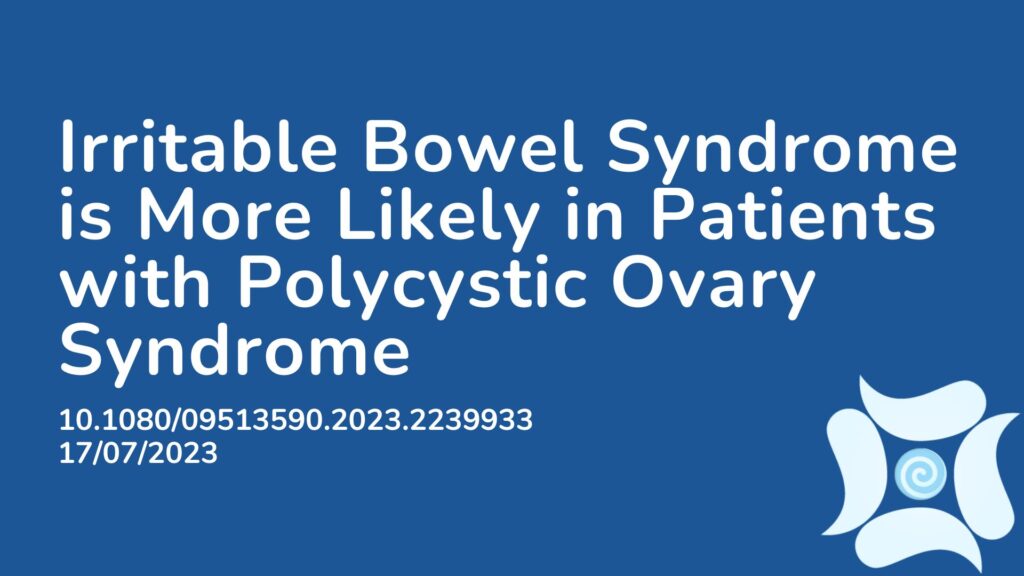Summary:
Polycystic ovary syndrome (PCOS) is a prevalent endocrine disorder affecting up to 10% of reproductive-age women. It is characterized by an excess of androgens, ovarian dysfunction, and abnormal polycystic ovarian follicles. Insulin resistance is considered a significant factor in its pathogenesis. Irritable bowel syndrome (IBS), also affecting up to 10% of the global population, is a digestive disorder characterized by abdominal pain and altered stool patterns. PCOS and IBS have similar risk factors including psychological disorders like anxiety and depression that impact quality of life. Some studies have shown an increased risk of IBS in PCOS patients, while others suggest minimal influence. This systematic review aims to quantify the relationship between PCOS and IBS, potentially guiding further research and improving quality of life for those with PCOS. Data from observational studies were collected and included 1559 individuals. The results revealed that patients with PCOS are twice as likely to also have IBS, but further high-quality research is needed to reinforce these findings.
Abstract:
Background: Research on the prevalence of irritable bowel syndrome (IBS) among polycystic ovary syndrome (PCOS) patients has gained significant momentum over the years. However, it remains unclear whether PCOS is related to a higher prevalence of IBS. The objective of this systematic review and meta-analysis was to fully study IBS correlation with PCOS. Methods: From inception until October 16th, 2022, all observational studies documenting IBS prevalence in PCOS patients were collected from the China national knowledge infrastructure(CNKI), China Science and Technology Journal Database(VIP), Wanfang database, PubMed, Embase, Web of Science, and Cochrane databases. The quality of case-control studies was assessed with Newcastle-Ottawa Scale. Review Manager 5.3 was used to determine the pooled odds ratio (OR) and 95% confidence interval (CI). Results: 5 case-control studies involving 1268 individuals and one cross-sectional study involving 291 participants were included in our qualitative analysis. The quantitative analysis was conducted based on five case-control studies. Four case-control studies involving 1063 participants showed a higher prevalence of IBS in PCOS This meta-analysis revealed an almost twice higher risk of IBS in comparison with controls (OR = 2.23, 95%CI:1.58-3.14, p < 0.001; I2=41%, p = 0.150). Four sensitivity analyses validated the consistency of the aggregated findings. Conclusion: This meta-analysis and systematic review demonstrated a significant association between PCOS and increased odds of IBS. However, more high-quality and well-controlled research is essential to increase the robustness of our conclusions.
Article Publication Date: 17/07/2023
DOI: 10.1080/09513590.2023.2239933




